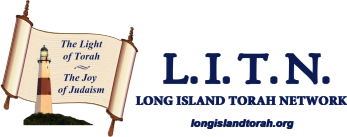Ki Sisa
Ki Sisa begins with several instructions pertaining to the Tabernacle:
Knowing that Moses is to be gone forty days, the Jews count the day of Revelation as Day One; actually, the forty days begin the following morning. When Moses does not return as expected, the people panic. They turn to Aaron, Moses’ older brother and interim leader of the Jews, demanding a replacement for Moses. The people are well-meaning but desperate, and their search for an intermediary with G-d crosses a fine line into idolatry. Aaron cooperates with the people, seeking to stall for time and mitigate the disaster; but he underestimates the Jews’ alacrity. The simple question, “Who has gold?” quickly leads to the formation of a Golden Calf, which the people view as Divine.
Up in Heaven, G-d informs Moses of the Jewish People’s faithlessness – and His plan to destroy them. G-d hints that prayer is the only hope; Moses prays and averts destruction. Moses descends the mountain and publicly smashes the stone tablets inscribed with the Ten Commandments. He restores order, destroys the Golden Calf, and punishes the perpetrators.
Moses ascends the mountain for another forty days to seek atonement for the Jews. “If You [will] not [forgive them] erase me, please, from Your book!” he demands. G-d agrees to pardon the Jews, but there will be consequences: an angel will lead the Jews to the Holy Land, not G-d Himself. This decree, too, is eventually repealed through Moses’ prayer.
Finally, G-d commands Moses to carve a second set of tablets and ascend the mountain for a third and final time. G-d engraves the new tablets with the Ten Commandments. He also teaches Moses the Attributes of Mercy – thirteen descriptions of Heavenly compassion, to be invoked by the Jews in prayer when they wish to arouse G-d’s mercy in the future. Moses descends Mount Sinai with the news that G-d has forgiven the Jews wholeheartedly; the joyous day is designated a Day of Atonement for all time – Yom Kippur.
Click below to open a printable pdf
- Counting the Jews – Moses is to take a population census; the process symbolizes the value of each individual. The People are not to be counted directly, but are to contribute a half-Shekel each, which will be tallied to give the total. The silver coins will be melted down and used in constructing the Tabernacle.
- The construction of a copper washstand, for the Kohanim (priests) to wash their hands and feet before Temple service.
- The ingredients of the perfumed Anointing Oil, used for the consecration of the Tabernacle and the Kohanim, and for the appointment of future High Priests and Jewish kings.
- The ingredients of the Ketores – incense, offered daily in the Tabernacle sanctuary.
Knowing that Moses is to be gone forty days, the Jews count the day of Revelation as Day One; actually, the forty days begin the following morning. When Moses does not return as expected, the people panic. They turn to Aaron, Moses’ older brother and interim leader of the Jews, demanding a replacement for Moses. The people are well-meaning but desperate, and their search for an intermediary with G-d crosses a fine line into idolatry. Aaron cooperates with the people, seeking to stall for time and mitigate the disaster; but he underestimates the Jews’ alacrity. The simple question, “Who has gold?” quickly leads to the formation of a Golden Calf, which the people view as Divine.
Up in Heaven, G-d informs Moses of the Jewish People’s faithlessness – and His plan to destroy them. G-d hints that prayer is the only hope; Moses prays and averts destruction. Moses descends the mountain and publicly smashes the stone tablets inscribed with the Ten Commandments. He restores order, destroys the Golden Calf, and punishes the perpetrators.
Moses ascends the mountain for another forty days to seek atonement for the Jews. “If You [will] not [forgive them] erase me, please, from Your book!” he demands. G-d agrees to pardon the Jews, but there will be consequences: an angel will lead the Jews to the Holy Land, not G-d Himself. This decree, too, is eventually repealed through Moses’ prayer.
Finally, G-d commands Moses to carve a second set of tablets and ascend the mountain for a third and final time. G-d engraves the new tablets with the Ten Commandments. He also teaches Moses the Attributes of Mercy – thirteen descriptions of Heavenly compassion, to be invoked by the Jews in prayer when they wish to arouse G-d’s mercy in the future. Moses descends Mount Sinai with the news that G-d has forgiven the Jews wholeheartedly; the joyous day is designated a Day of Atonement for all time – Yom Kippur.
Click below to open a printable pdf
| ki_sisa_snapshot_and_closer_look_template_final.pdf | |
| File Size: | 945 kb |
| File Type: | |

